Portable vs. Studio Headphones: What’s the Difference?
7 December 2024
If you’re someone who loves music, whether casually or professionally, you’ve probably asked yourself this question at some point: “Should I get portable or studio headphones?” It might seem like a simple decision, but trust me, it’s a whole lot more complex than just choosing based on looks or price. These two types of headphones serve very different purposes, and picking the wrong one can make or break your listening experience.
In this article, we’re going to break down the key differences between portable and studio headphones. By the end, you’ll have a crystal-clear understanding of which type is right for you. So, let’s dive right in!
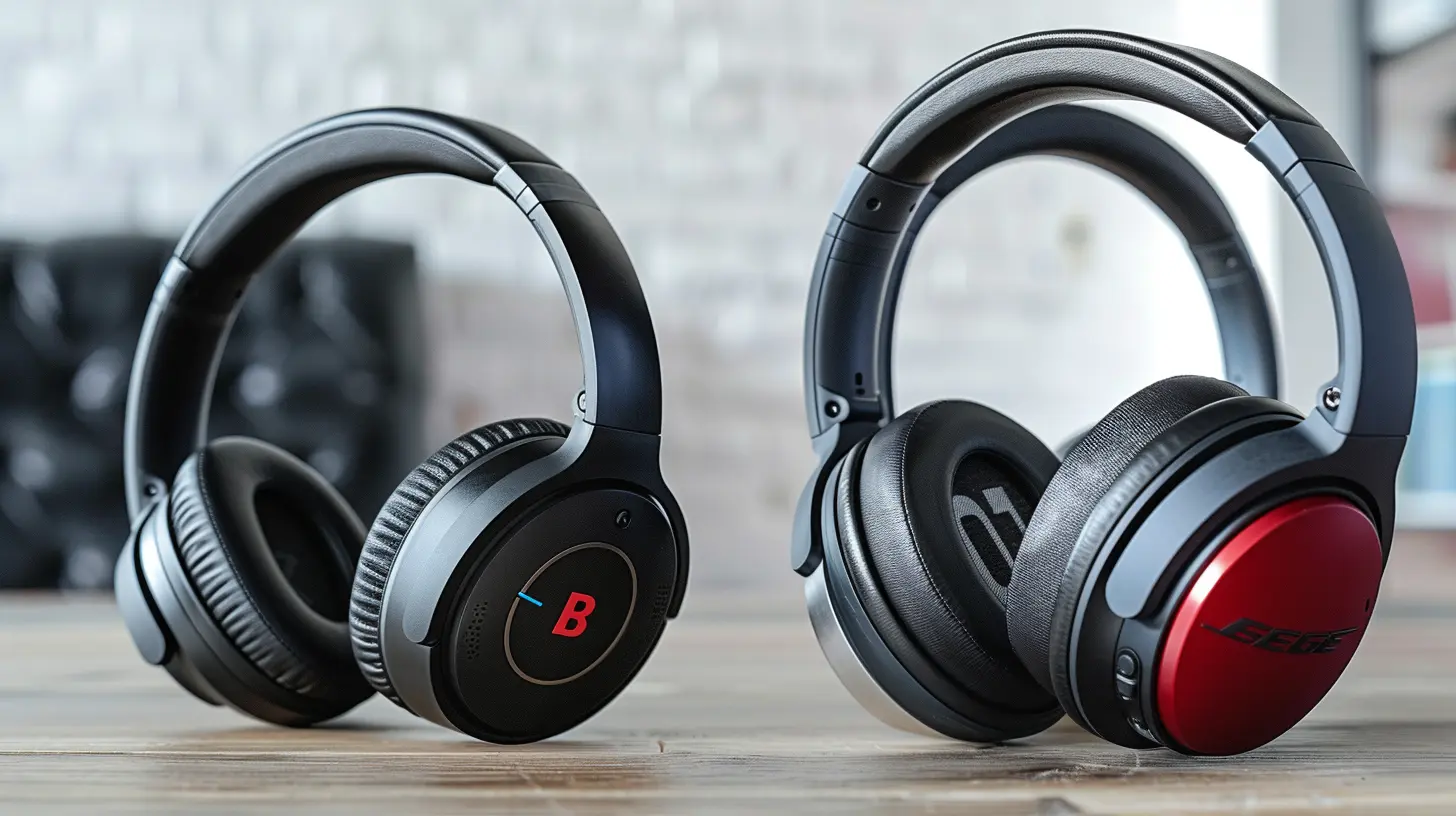
What Are Portable Headphones?
Convenience is Key
Portable headphones are exactly what they sound like—headphones designed for use on the go. They’re typically lightweight, foldable, and easy to carry around. Whether you’re commuting, at the gym, or just walking around town, portable headphones are designed to be your trusty audio companion.Design and Comfort
Most portable headphones are either on-ear or in-ear headphones. On-ear headphones sit right on top of your ears, while in-ear headphones (also known as earbuds) fit inside your ear canal. Both designs prioritize comfort and mobility. They’re generally smaller and lighter, so you can wear them for extended periods without feeling like your head is about to explode.Sound Quality
Now, let’s talk about sound. Portable headphones are designed for casual listening. They’re often tuned to enhance bass, making them ideal for listening to modern genres like pop, hip-hop, or EDM. However, this bass-heavy tuning can sometimes overshadow the mids and highs, which may not give you the most accurate sound.But hey, when you’re on the go, are you really focusing on every tiny musical detail? Probably not. For most people, portable headphones provide more than sufficient sound for casual, everyday listening.
Noise Isolation and Battery Life
Many portable headphones come with noise isolation features, like passive noise isolation (where the headphone cups block out sound) or active noise cancellation (ANC), which uses built-in technology to cancel out external noise. This can be a game-changer when you’re on a noisy subway or a long flight.And if you’re going wireless, battery life is another factor to consider. Most portable wireless headphones can last anywhere from 10 to 30 hours on a single charge, which is plenty for daily use.
Pros of Portable Headphones:
- Lightweight and easy to carry- Often wireless with decent battery life
- Good for casual listening
- Some models come with noise cancellation
Cons of Portable Headphones:
- Sound quality is often not as accurate- Build quality may not be as durable
- Limited comfort for extended listening sessions
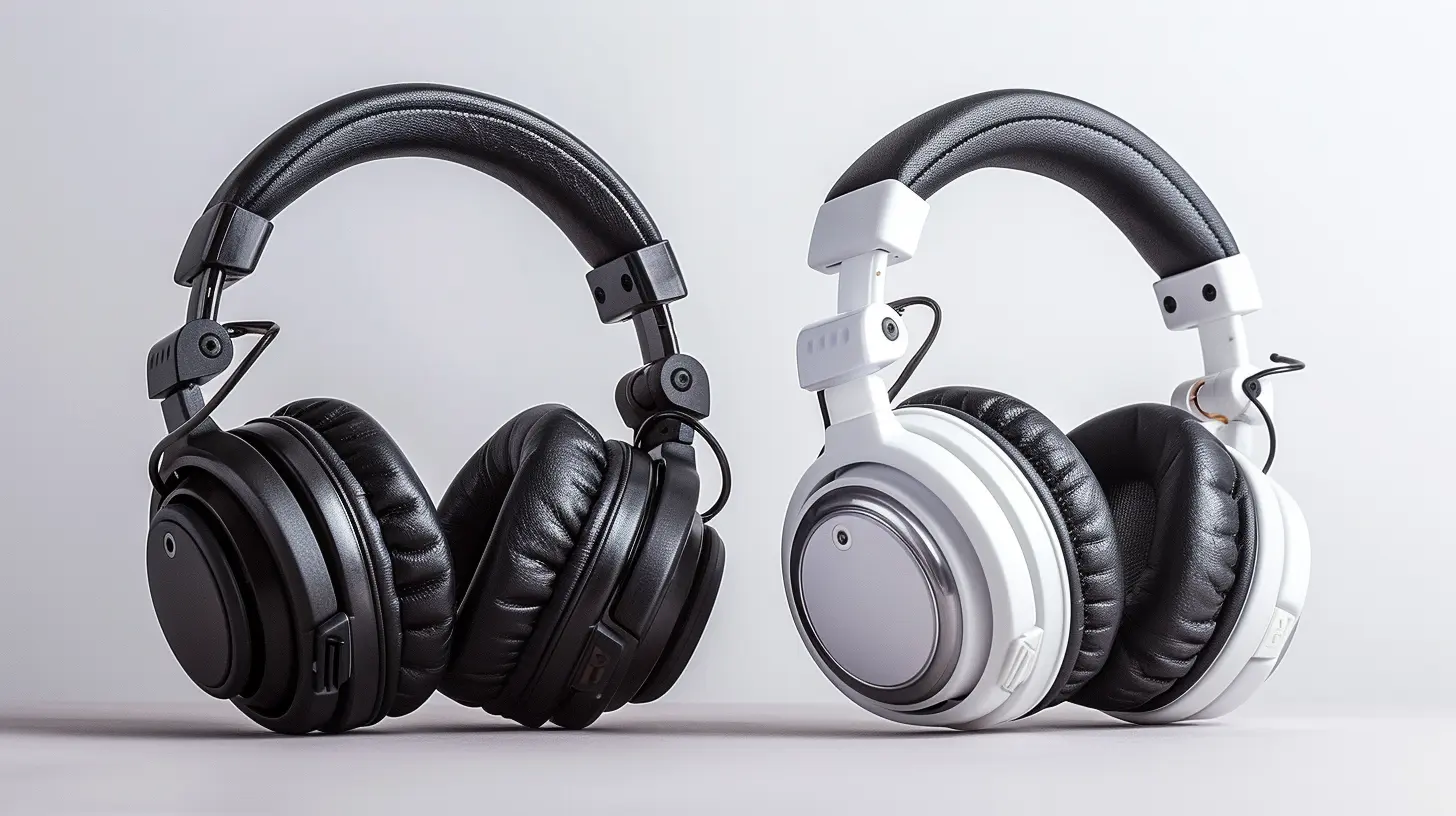
What Are Studio Headphones?
For the Audiophiles and Professionals
Studio headphones, on the other hand, are designed for one thing: accuracy. If you’re a musician, producer, or someone who takes sound quality very seriously, studio headphones are your go-to. They’re built to provide a flat, neutral sound, meaning they don’t boost or cut any frequencies. This lets you hear the music exactly as it was recorded.Design and Comfort
Studio headphones are typically over-ear headphones, with large ear cups that completely cover your ears. They tend to be heavier and bulkier than portable headphones, but they also offer superior comfort for long listening sessions. The ear cups are often padded with plush materials, and the headbands are adjustable, so you won’t feel like your head’s in a vice after wearing them for hours.Sound Quality
Here’s where studio headphones really shine. Unlike portable headphones, which often boost the bass or treble, studio headphones deliver a flat, neutral sound. This makes them perfect for mixing, mastering, or any kind of audio work where you need to hear every detail clearly. You won’t get the booming bass that you might with portable headphones, but you will get a much more accurate representation of the music.So, if you’re someone who loves to pick apart the layers of a song or needs to hear every instrument clearly, studio headphones are definitely worth considering.
Open-Back vs. Closed-Back
Another important distinction within studio headphones is whether they’re open-back or closed-back. Closed-back headphones have solid ear cups that block out external noise, making them ideal for recording sessions. Open-back headphones, on the other hand, have perforated ear cups that allow air and sound to pass through, delivering a more natural and spacious sound. However, open-back headphones also let in a lot of external noise, so they’re best suited for mixing in quiet environments.Pros of Studio Headphones:
- Accurate, neutral sound- Comfortable for long listening sessions
- Durable build quality
- Ideal for audio work like mixing and mastering
Cons of Studio Headphones:
- Bulkier and less portable- Often more expensive
- Open-back models may let in external noise
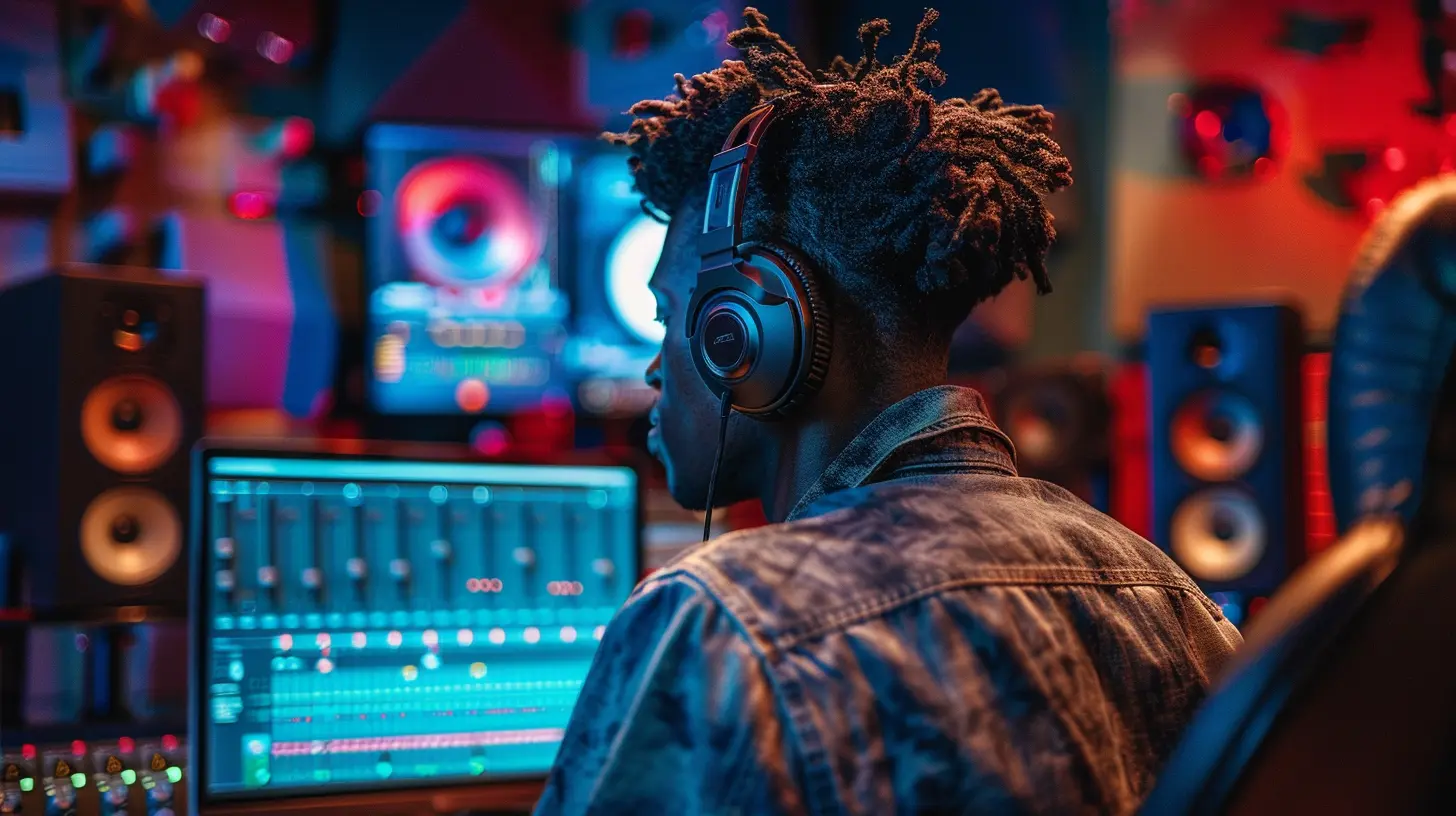
Key Differences Between Portable and Studio Headphones
1. Portability
It’s right there in the name—portable headphones are designed to be, well, portable. Their lightweight design and foldable features make them easy to carry around. Studio headphones, on the other hand, are bulkier and designed for stationary use in a studio or home environment.2. Sound Quality
If you’re after booming bass and a more “fun” sound, portable headphones will likely satisfy you. They’re often tuned to emphasize the low-end, which works great for casual listening. Studio headphones, however, are all about accuracy. They offer a flat sound signature, which is essential for audio work but may not be as enjoyable for casual listeners who prefer a more dynamic sound.3. Comfort
While both types of headphones can be comfortable, they serve different purposes. Portable headphones are designed for short bursts of listening on the go, so they tend to be lightweight but may lack the plush padding found on studio headphones. Studio headphones, on the other hand, are designed for long listening sessions, so they’re often more cushioned and adjustable.4. Noise Isolation
Many portable headphones come with noise-cancelling features, which can be a lifesaver when you’re in a noisy environment. Studio headphones, particularly open-back models, don’t offer much in the way of noise isolation. They’re designed for use in quiet spaces where external noise isn’t an issue.5. Price
Generally speaking, studio headphones are more expensive than portable headphones. This makes sense when you consider the materials and technology that go into making studio-quality headphones. Portable headphones, while still offering some premium models, tend to be more affordable overall.6. Durability
Let’s not forget durability. Portable headphones are designed to withstand being tossed into a bag or pocket, but they may not be built to last through years of heavy use. Studio headphones, on the other hand, are often built like tanks. They’re designed to endure the rigors of daily studio use, which means they’re usually made from higher quality materials.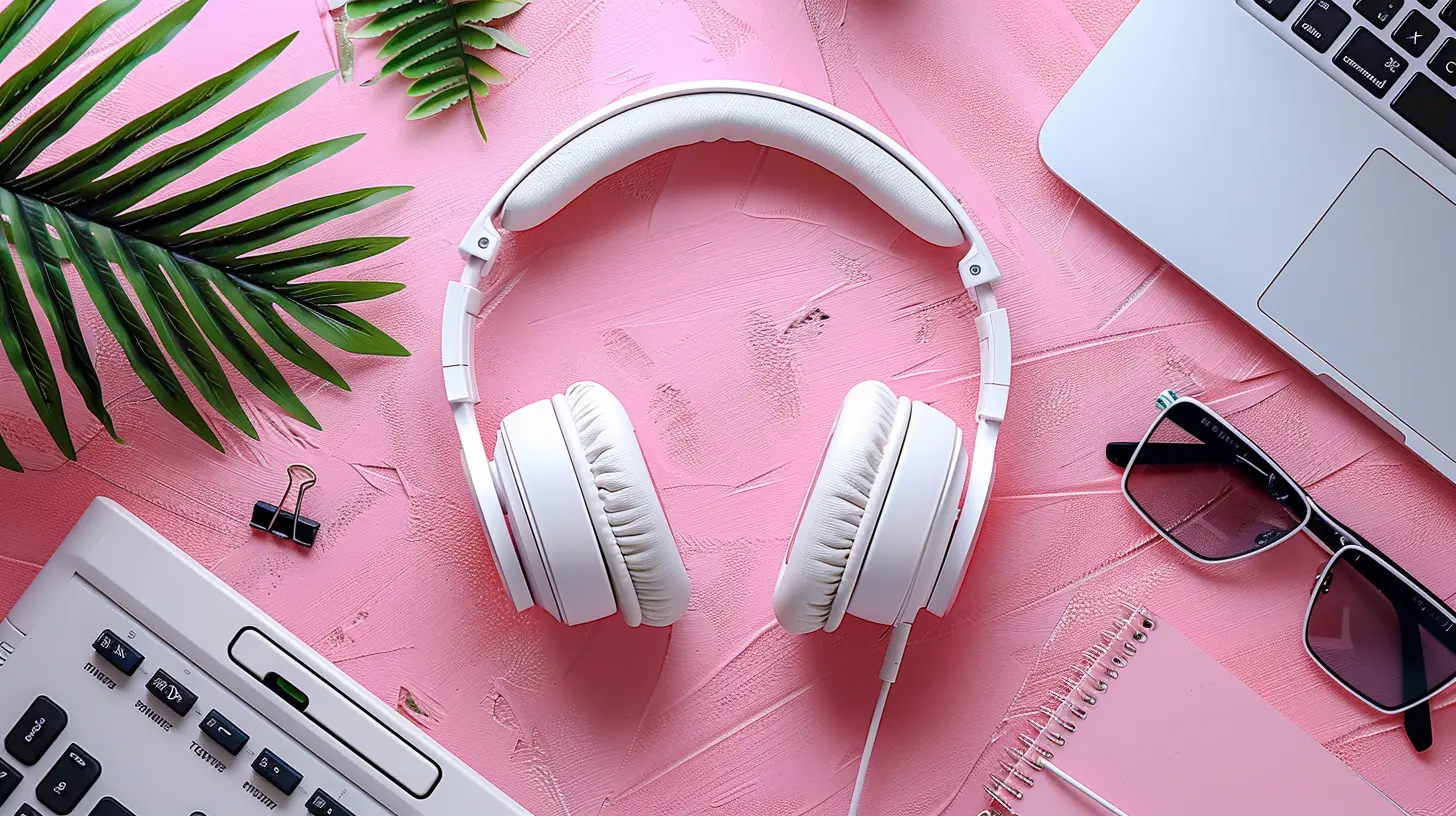
Which One Should You Choose?
Now that we’ve covered the key differences, the big question is: which one should you go for?Choose Portable Headphones If:
- You’re often on the move and need something lightweight and easy to carry.- You enjoy a bass-heavy sound for casual listening.
- You want wireless capabilities and decent battery life.
- You need noise cancellation for commuting or travel.
Choose Studio Headphones If:
- You’re a musician, producer, or audiophile who values sound accuracy.- You need headphones for mixing or mastering.
- You’ll be using them primarily in a quiet, stationary environment.
- You’re willing to invest in a higher-quality, durable product.
Can You Own Both?
Absolutely! There’s no rule that says you can’t own both types of headphones. In fact, many people have a pair of portable headphones for when they’re out and about and a pair of studio headphones for when they’re at home or in the studio. It all depends on your needs and how much you’re willing to spend.Final Thoughts
At the end of the day, choosing between portable and studio headphones comes down to how you plan to use them. If you’re looking for something convenient and casual, portable headphones are the way to go. But if sound quality and accuracy are your top priorities, studio headphones are hard to beat.Whichever you choose, make sure to do your research and try out a few models before making a decision. After all, headphones are an investment in your listening experience, and you want to make sure you’re getting the best one for your needs.
###
all images in this post were generated using AI tools
Category:
HeadphonesAuthor:

John Peterson
Discussion
rate this article
18 comments
Anika Cross
Great article! It’s fascinating to see the differences between portable and studio headphones. Whether you're on the go or mixing tracks at home, understanding their unique features helps us choose the perfect pair for our needs! 🎧✨
February 1, 2025 at 5:47 AM

John Peterson
Thank you! I'm glad you found it helpful. Understanding those differences really does make a big impact on choosing the right headphones! 🎶✨
Anastasia McMurtry
Great insights! Helpful for audio enthusiasts.
January 25, 2025 at 7:29 PM

John Peterson
Thank you! I'm glad you found it helpful for understanding the differences.
Hattie McTiernan
Great article! It’s so helpful to understand the pros and cons of portable vs. studio headphones. I always struggled with choosing the right pair for my needs!
January 19, 2025 at 3:53 AM

John Peterson
Thank you for your kind words! I'm glad you found the article helpful in making your decision. Happy listening!
Ariella McPhee
Portability vs. precision: choose wisely!
January 13, 2025 at 3:54 AM

John Peterson
Both have their strengths! Portable headphones prioritize convenience and mobility, while studio headphones focus on accurate sound reproduction. Your choice depends on your needs—whether you value on-the-go use or critical listening.
Brick McNab
In the realm where soundwaves dance, Portable whispers cradle your chance, While studio giants, bold and true, Craft each note, revealing the view. One seeks freedom in fleeting grace, The other, precision in a sacred space. Choose your path, let your music embrace.
January 6, 2025 at 5:08 AM

John Peterson
Thank you for your poetic insight! You've beautifully captured the essence of the choice between portable and studio headphones. Each has its unique strengths—freedom and convenience versus precision and depth—allowing listeners to find their perfect sound experience.
Reagan McNeal
This article insightfully highlights key differences; choosing between portability and sound quality truly depends on personal needs.
January 3, 2025 at 11:50 AM

John Peterson
Thank you for your thoughtful comment! I agree that personal needs play a crucial role in choosing between portability and sound quality.
Camille Cooper
Great article! It’s crucial to understand the unique benefits of portable and studio headphones. Choosing the right pair can significantly enhance your listening experience, whether on the go or in the studio.
December 29, 2024 at 12:19 PM

John Peterson
Thank you! I'm glad you found the article helpful. Understanding the differences truly makes a big difference in your listening experience!
Riven McFarland
Great breakdown of the differences between portable and studio headphones! It's crucial for consumers to understand how portability impacts sound quality and comfort. While studio headphones excel in accuracy for mixing, portable options offer convenience for on-the-go listening. Choosing the right type depends on individual needs and usage scenarios.
December 25, 2024 at 7:45 PM

John Peterson
Thank you for your insightful comment! You’ve perfectly captured the key considerations in choosing between portable and studio headphones based on individual needs.
Megan McClain
In realms of sound, two worlds collide— Portables dance with freedom, while studios cradle precision. Choose your companion, let music be your guide.
December 20, 2024 at 5:16 AM

John Peterson
Thank you for your poetic summary! Indeed, the choice between portable and studio headphones hinges on the balance between freedom and precision in sound experience.
Lorelei Gray
Great article! It’s so helpful to understand the differences between portable and studio headphones. Each type serves unique needs, whether you're on the go or mixing in the studio. Thanks for breaking it down in such an engaging way! Looking forward to more insights!
December 15, 2024 at 8:54 PM

John Peterson
Thank you for your kind words! I'm glad you found the article helpful. Stay tuned for more insights!
Madalyn Wade
Great article! It’s so helpful to understand the key differences between portable and studio headphones. As someone who loves music on-the-go and in-depth listening, this guide is perfect!
December 13, 2024 at 4:31 AM

John Peterson
Thank you! I'm glad you found the article helpful for your listening needs!
Iris McClain
Great article! It succinctly highlights the key differences between portable and studio headphones, emphasizing how portability caters to on-the-go use while studio models prioritize sound accuracy. Understanding these distinctions helps consumers make informed choices based on their listening needs and environments.
December 11, 2024 at 8:06 PM

John Peterson
Thank you! I'm glad you found the article helpful in understanding the differences between portable and studio headphones. Your feedback is much appreciated!
Phoenix Velez
Choosing between portable and studio headphones is like picking a snack: do you want crunchy on-the-go munchies or a gourmet feast at home? Just remember, one lets you dance on the subway, while the other lets you perfect your ‘serious artist’ face in silence!" 🎧😄
December 10, 2024 at 8:13 PM

John Peterson
Great analogy! Each type serves its purpose perfectly—portable headphones for on-the-go enjoyment and studio headphones for detailed listening. Choose based on your vibe! 🎧
Kairoth Martin
Whether you choose portable or studio headphones, remember that the perfect sound experience is about finding what inspires you. Embrace your journey in audio discovery!
December 9, 2024 at 8:10 PM

John Peterson
Thank you! I completely agree—your personal audio journey is key to finding the perfect headphones for your needs. Happy listening!
Mila Gilbert
Choosing between portable and studio headphones is like deciding between a cozy couch and a fancy chair—one's for lounging while the other’s for impressing your audiophile friends!
December 8, 2024 at 8:46 PM

John Peterson
Great analogy! Each has its own purpose: portable headphones for casual use and studio headphones for serious listening.
Harmony Fry
Great article! I’ve always wondered about the differences between portable and studio headphones. It’s so interesting how each type serves unique needs—definitely helps in making a better choice for my listening habits!
December 8, 2024 at 3:25 AM

John Peterson
Thank you for your kind words! I'm glad you found the article helpful in understanding the differences between portable and studio headphones. Happy listening!
Dulce Rivera
This article effectively highlights the key differences between portable and studio headphones, emphasizing their unique design purposes. It’s a helpful guide for consumers looking to choose the right pair based on their listening needs and environment.
December 7, 2024 at 9:42 PM

John Peterson
Thank you for your feedback! I'm glad you found the article helpful in understanding the differences between portable and studio headphones.
Zina McGonagle
Great overview of the key differences between portable and studio headphones! Your insights on sound quality and usability are particularly helpful for anyone looking to choose the right pair for their needs. Looking forward to more articles like this!
December 7, 2024 at 11:50 AM

John Peterson
Thank you for your kind words! I'm glad you found the insights helpful. Stay tuned for more articles!
MORE POSTS

How Fintech is Simplifying Crowdfunding for Entrepreneurs

Best Collaboration Tools for Remote Development Teams

Overcoming Challenges in Robotic Process Automation Adoption

The Smart Home of Tomorrow: Beyond Automation

Autonomous Vehicle Security: Protecting Against Cyber Threats

How Autonomous Vehicles Are Reshaping the Automotive Supply Chain
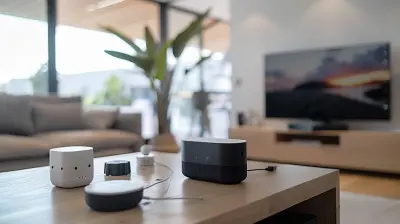
Mesh vs. Traditional Routers: Which Is Right for You?

How Battery Advancements Are Powering the Space Race
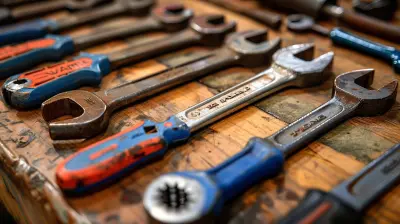
Developer Tools for Building Scalable Web Applications

The Power of AI in Predicting Battery Performance
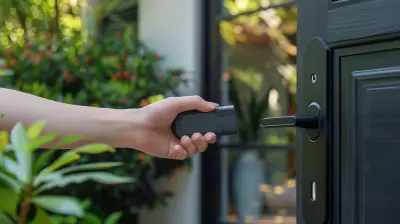
The Pros and Cons of Smart Locks for Home Security